Brazil dismisses Rio 2016 Olympics water pollution worries
- Published
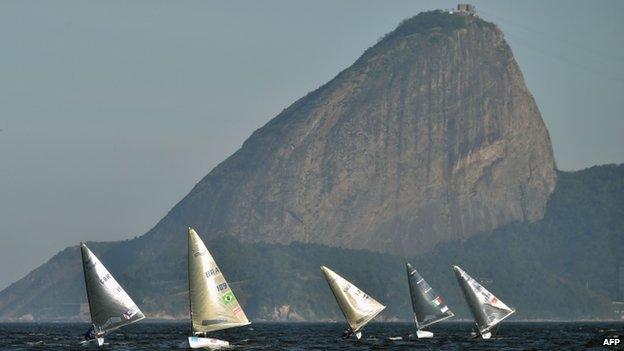
Despite the stunning Sugar Loaf background, athletes say they are concerned about sea pollution
The organisers of the 2016 Olympics in Rio de Janeiro have dismissed concerns about water pollution in the bay where sailing events will be held.
Brazilian officials said recent tests show that the waters in Guanabara Bay meet international standards.
The first official test event - for the sailing competitions - went ahead on Sunday below the Sugar Loaf mountain.
Athletes who have competed there recently say they bumped into floating debris, including sofas and a dead dog.
"The sailors and boats do not want to be in a field of play where there are any type of objects," said Alastair Fox, head of competitions at the International Sailing Federation (Isaf).
"And here there are some - sofa, door, dog - and we know any of these objects could affect the performance of a sailor.
"We need to make sure the race course is fair for everyone and that it is free from debris, he told the BBC's Julia Carneiro in Rio.
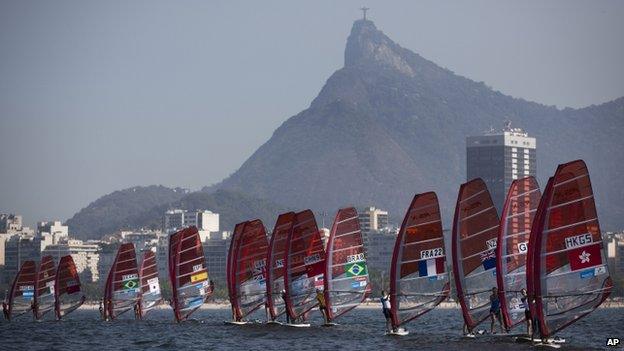
The world-famous Christ the Redeemer statue can be seen from the five sailing courses
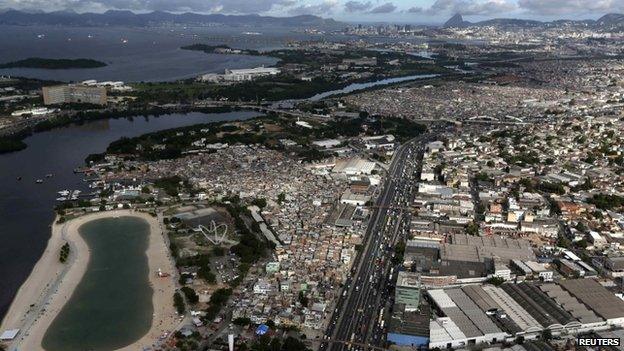
The government has built artificial beaches with clean water for Rio's poorer communities
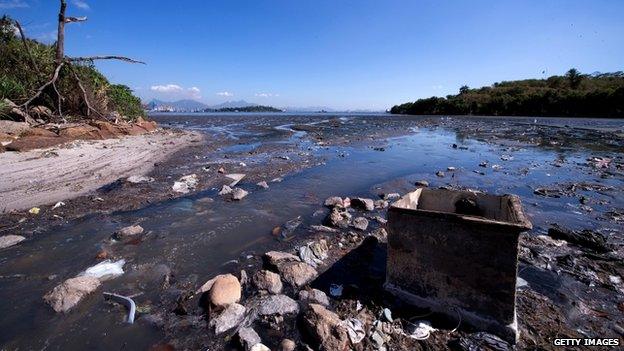
Hundreds of millions of gallons of untreated sewage flows daily into the bay
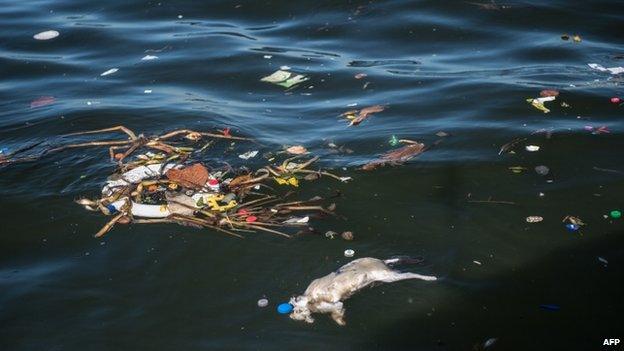
A dead cat floats on the dark waters of Guanabara Bay
Brazilian media reported that the event could be moved to another sailing venue.
But the Rio Olympics Organising Committee said there was no plan B.
"The tests were positive and we can confirm that water is safe for the athletes," said Rio-2016 Sustainability Manager Julie Duffus.
In its Olympic bid, Rio promised to clean Guanabara Bay by 80%.
But in June Mayor Eduardo Paes admitted the target would not be met.
"I am sorry that we did not use the games to get Guanabara Bay completely clean," Mr Paes said during a media conference.
Greater Rio has a population of some 10 million people and millions of litres of untreated sewage are dumped in the bay every day.
"We understand the athletes' concerns. We will focus on the areas of the five sailing courses to prevent any disruption to the races," has now said Rio Olympics Sports Director Rodrigo Garcia.
- Published8 June 2014
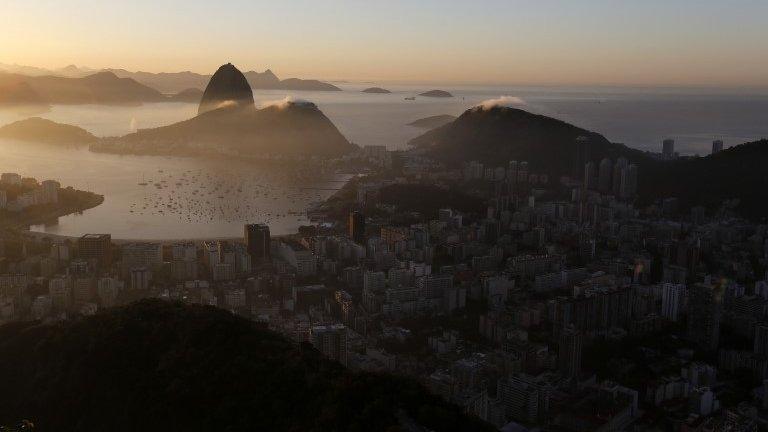
- Published10 January 2014
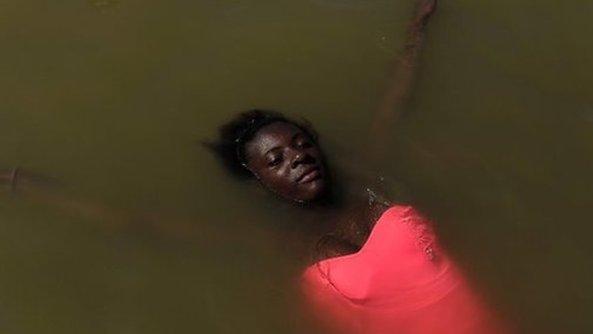
- Published7 January 2014
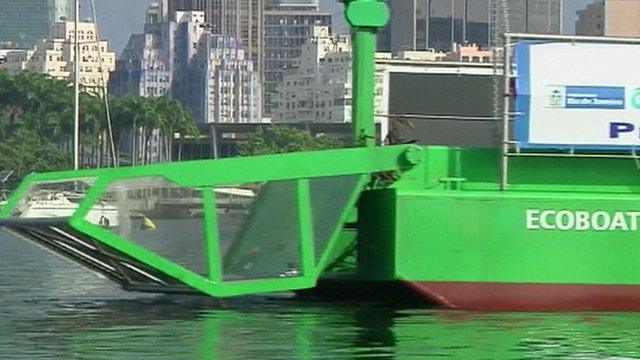
- Published19 February 2014